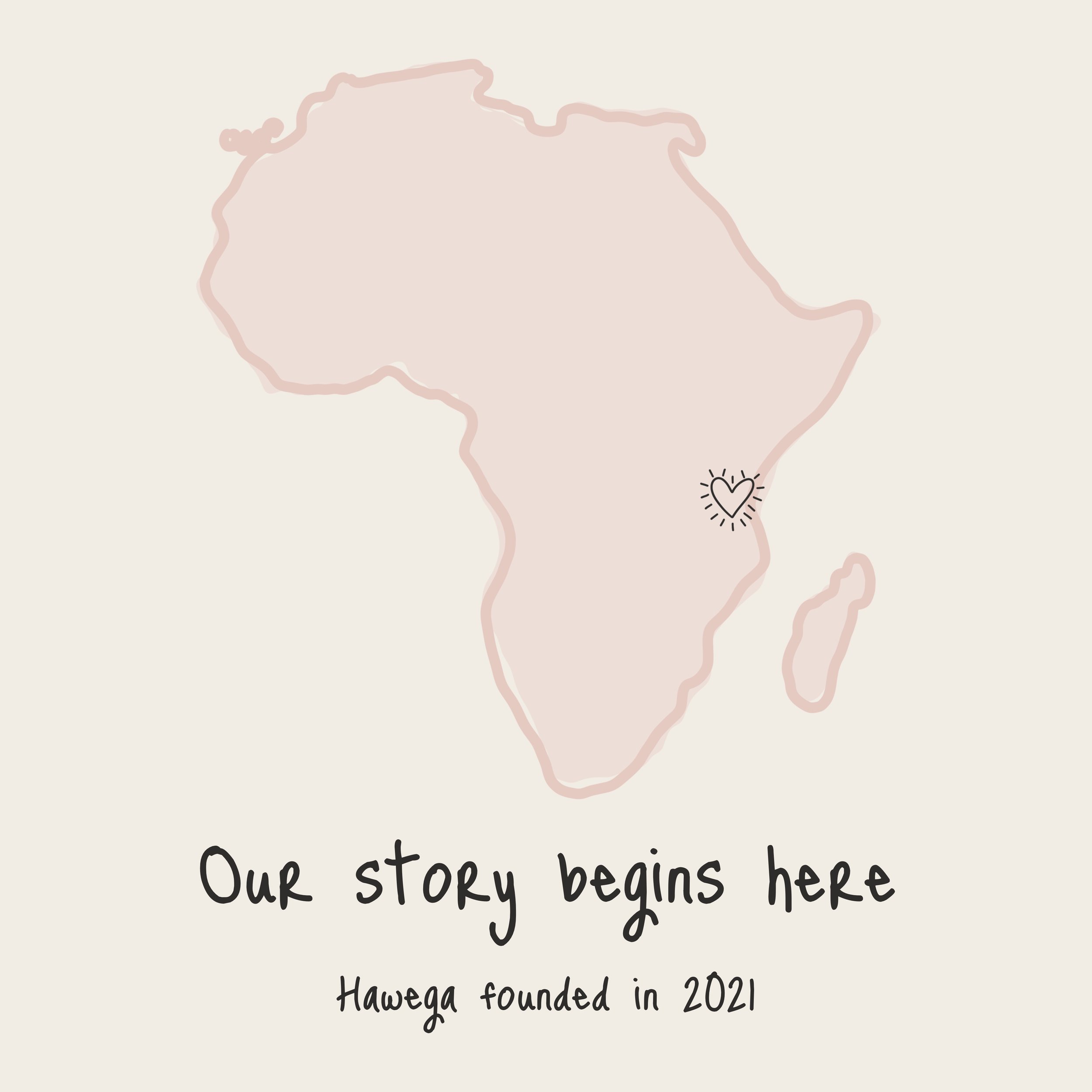The Hawega Foundation was
a dream planted in the heart of our founder, Sainga Gidobat, long before it was a reality.
once upon a time there was a little boy…

Once upon a time in a small village in a far-off land of Tanzania, there lived a young boy named Sainga. Sainga was a shepherd boy who helped to take care of his family's cattle, sheep, and goats. He lived a simple life, much like the other boys in his village, and followed the traditional lifestyle of his tribe.

Once upon a time in a small village in a far-off land of Tanzania, there lived a young boy named Sainga. Sainga was a shepherd boy who helped to take care of his family's cattle, sheep, and goats. He lived a simple life, much like the other boys in his village, and followed the traditional lifestyle of his tribe.
the beginning of the ‘Amy challenge’
One day, a traveler named Amy, from a far-off land called the United States, came to Sainga's village. She was an anthropologist, which meant that she studied the customs and traditions of different cultures. Sainga's mother looked after Amy during her stay.
As Amy spent time in the village, she noticed something unique about Sainga. Despite his young age, he was very intelligent and had a natural curiosity about the world around him. She offered to send him to school as a gift of her appreciation for his mother's kindness.
the beginning
of the ‘Amy challenge’
One day, a traveler named Amy, from a far-off land called the United States, came to Sainga's village. She was an anthropologist, which meant that she studied the customs and traditions of different cultures. Sainga's mother looked after Amy during her stay.
As Amy spent time in the village, she noticed something unique about Sainga. Despite his young age, he was very intelligent and had a natural curiosity about the world around him. She offered to send him to school as a gift of her appreciation for his mother's kindness.
At first, Sainga's tribe was skeptical about the idea of education. They didn't understand why someone would want to spend time learning when they could be out in the fields, tending to their flocks and helping the family. However, Sainga's mother was one of the few who understood the importance of education for the future of their people. This put him in a very unique position as one of the only people from his tribe to receive a formal education.
blit safari
Sainga worked hard and eventually graduated from college with a degree in economics and finance. He founded his own tourism company, BLiT Safari and Film, as a way to connect tourists with authentic Tanzanian cultural experiences.
blit safari
Sainga worked hard and eventually graduated from college with a degree in economics and finance. He founded his own tourism company, BLiT Safari and Film, as a way to connect tourists with authentic Tanzanian cultural experiences.

the hawega effect
Inspired by Amy's impact on his life, Sainga created the "Amy Challenge" today known as the "Hawega Effect.” It is the idea of helping others without expecting anything in return. He began connecting tourists with girls in his village to send them to school, but dreamed of something bigger.

the hawega effect
Inspired by Amy's impact on his life, Sainga created the "Amy Challenge" today known as the "Hawega Effect.” It is the idea of helping others without expecting anything in return. He began connecting tourists with girls in his village to send them to school, but dreamed of something bigger.
2021
the stars
aligned
In May of 2021, Sainga met two clients from the United States, Brittany and Brian. Brittany, a female entrepreneur with a passion for empowering girls had been looking for an opportunity to give back. Upon hearing Sainga’s story, they understood that this trip to Tanzania was part of a bigger purpose. The Hawega Foundation was born…
They came home and immediately got to work. The Hawega Foundation was founded in the United States three months later. By December, they had partnered with Silverleaf Academy and were ready to send the first five girls to school in Arusha.
In May of 2021, Sainga met two clients from the United States, Brittany and Brian. Brittany, a female entrepreneur with a passion for empowering girls had been looking for an opportunity to give back. Upon hearing Sainga’s story, they understood that this trip to Tanzania was part of a bigger purpose. The Hawega Foundation was born…
They came home and immediately got to work. The Hawega Foundation was founded in the United States three months later. By December, they had partnered with Silverleaf Academy and were ready to send the first five girls to school in Arusha.
2022
mission possible
In 2022, the foundation received
501c-3 status. By the end of the year the US team would return to Tanzania to send 15 girls to school.
the mission
WHAT WE DO
The Hawega Foundation is dedicated to putting an end to FGM within the Datooga tribe by empowering girls through education
and community support.

elephant
in the room
-
FGM stands for Female Genital Mutilation. It is a traditional practice that involves the partial or total removal of external female genitalia, or any other injury to the female genital organs for non-medical reasons. It is a violation of human rights and has no health benefits, but rather can cause serious physical and psychological harm, including pain, bleeding, infections, difficulties during childbirth, and even death. FGM is considered a form of gender-based violence and is recognized as a global public health issue that needs to be addressed through education and advocacy. Contrary to what some may think, FGM is carried out and performed by the women in the tribe. It is not discussed with the men.
-
Historically, well-meaning nonprofits and government agencies have gone into rural areas and told the locals that what they are doing is wrong and expected them to change. This approach hasn’t worked for multiple reasons.
We’ve talked to women who continue the practice with their own girls and they are not bad people. In fact, they are some of the most caring and loving mothers who want the best for their daughters. They have a variety of reasons to continue FGM- some misinformed, such as the belief that it increases health outcomes, and some legitimate such as girls who aren’t cut will be outsiders to the tribe.

elephant
in the room
-
FGM stands for Female Genital Mutilation. It is a traditional practice that involves the partial or total removal of external female genitalia, or any other injury to the female genital organs for non-medical reasons. It is a violation of human rights and has no health benefits, but rather can cause serious physical and psychological harm, including pain, bleeding, infections, difficulties during childbirth, and even death. FGM is considered a form of gender-based violence and is recognized as a global public health issue that needs to be addressed through education and advocacy. Contrary to what some may think, FGM is carried out and performed by the women in the tribe. It is not discussed with the men.
-
Historically, well-meaning nonprofits and government agencies have gone into rural areas and told the locals that what they are doing is wrong and expected them to change. This approach hasn’t worked for multiple reasons.
We’ve talked to women who continue the practice with their own girls and they are not bad people. In fact, they are some of the most caring and loving mothers who want the best for their daughters. They have a variety of reasons to continue FGM- some misinformed, such as the belief that it increases health outcomes, and some legitimate such as girls who aren’t cut will be outsiders to the tribe.
Our approach is different. We understand that systemic change needs to happen across the entire tribe. As one of the few college-educated Datooga in the area, and the son of a Datooga leader, Sainga is trusted within his tribe and in a unique position to make a change from within. His idea through the Hawega Foundation was to change the narrative within the tribe so that pride and honor would be related to education instead of being cut. Families that enter our sponsorship program agree to not perform FGM in exchange for their daughter’s education.
Captured above is one of the Datooga dads
signing in blood- agreeing not to perform FGM. 12/29/21
There has already been a signifcant shift in the last two years. In year one, we initially had nine girls slated for school, but four families became unsure and backed out. This year, after witnessing how happy the girls were there was an influx of interest. While we grew from five sponorships to fifteen, there was more interest than we could accommodate and we expect even more to come. If you are interested in sending a girl to school next year click here.
We are forever grateful to the first Datooga families that agreed to walk away from traditional FGM and embrace education. And thank you to all of our donors for your vision and generosity- you make it all possible! We look forward to creating a female-educated future that is free of FGM.
Our approach is different. We understand that systemic change needs to happen across the entire tribe. As one of the few college-educated Datooga in the area, and the son of a Datooga leader, Sainga is trusted within his tribe and in a unique position to make a change from within. His idea through the Hawega Foundation was to change the narrative within the tribe so that pride and honor would be related to education instead of being cut. Families that enter our sponsorship program agree to not perform FGM in exchange for their daughter’s education.
Captured above is one of the Datooga dads signing
in blood- agreeing not to perform FGM.
12/29/21
There has already been a signifcant shift in the last two years. In year one, we initially had nine girls slated for school, but four families became unsure and backed out. This year, after witnessing how happy the girls were there was an influx of interest. While we grew from five sponorships to fifteen, there was more interest than we could accommodate and we expect even more to come. If you are interested in sending a girl to school next year click here.
We are forever grateful to the first Datooga families that agreed to walk away from traditional FGM and embrace education. And thank you to all of our donors for your vision and generosity- you make it all possible! We look forward to creating a female-educated future that is free of FGM.
The Hawega Foundation is recognized as a tax-exempt organization under section 501 (c)(3). No goods or services have been rendered in exchange for your contribution, which may be tax deductible. Please retain this correspondence for your tax records as it serves as your receipt.
The Hawega Foundation is recognized as a tax-exempt organization under section 501 (c)(3). No goods or services have been rendered in exchange for your contribution, which may be tax deductible. Please retain this correspondence for your tax records as it serves as your receipt.









